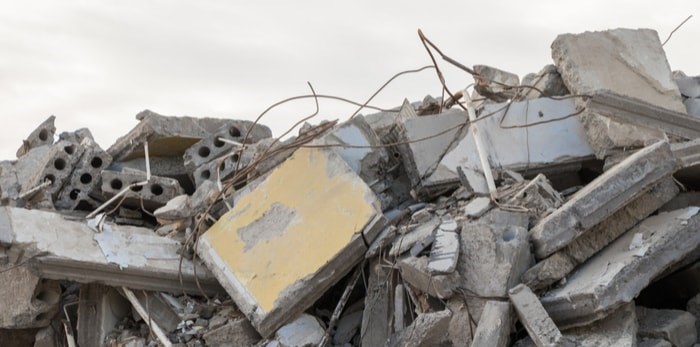For decades, British Columbians have been warned about “the big one.”
The possibility of an earthquake affecting our province usually enters our consciousness twice a year. First, when the early days of May mark Emergency Preparedness Week across Canada. Later, in October, residents participate in Shake Out drills to “drop, cover and hold on.”
 Building rubble/Shutterstock
Building rubble/Shutterstock
Over the past few years, earthquakes have affected several countries. Some British Columbians recall the Nisqually tremor of February 2001, which caused property damage in Washington state and was felt in many areas of Western Canada. Other recent tremors have caused hundreds of fatalities in Indonesia, Mexico and New Zealand.
The way in which a comparable event will affect British Columbians will depend squarely on where people are located. Coastal areas may be more prone to tsunamis, while urban residents will undoubtedly deal with some kind of infrastructure damage that could make transportation extremely difficult.
When Research Co. asked British Columbians about emergencies earlier this month, three in four residents (76%) said they consider it “very likely” or “moderately likely” that an earthquake strong enough to damage buildings will occur in the province in the next 50 years.
Only 17% of British Columbians think a devastating earthquake is “not too likely” or “not likely at all” to hit our province.
In a separate question, two-thirds of British Columbians (68%) admit they are “very concerned” or “moderately concerned” about being personally affected by an earthquake. This is the second-highest incidence of worry about a particular event after a fire (79%) and considerably higher than other incidents, including heavy snowfall (56%), a terrorist attack (54%) and a landslide (46%).
It matters little what your gender, age, region or political preference is. A sizable majority of the province’s residents are worried about facing the misfortune that an earthquake would bring.
Related:
- The big one: Why earthquake prep is vital in Vancouver
- V.I.A. podcast Ep 5 – The big quake is coming
Looking at the current anxiety that British Columbians outline when asked about earthquakes, it would be easy to imagine that most of the population has already taken steps to deal with an impending emergency. Unfortunately, this is not the case yet.
Across British Columbia, only 46% of residents acknowledge having purchased or prepared an emergency kit with supplies they might need in case of an unforeseen event.
British Columbians aged 35 to 54 are more likely to currently possess an emergency kit (55%) than their younger and older counterparts (45% among those aged 18 to 34 and 39% among those aged 55 and over).
On a regional basis, Vancouver Islanders are ahead of the provincial average when it comes to having supplies and tools handy in case they are needed (46%) while those in the Fraser Valley are far behind (40%).
Still, an emergency kit is only one component. The proportion of residents who have taken other steps to deal with an unforeseen event is lower.
Only 39% of British Columbians have prepared a plan that includes how to get in touch with family or friends in case of an emergency. Even fewer (35%) have established a specific meeting place with family or friends in case of an emergency.
The survey shows that there is an evident disconnect between the level of concern that residents are expressing in regard to facing “the big one” and the actions that they have already taken to ensure that, if and when it happens, its effect on their households can be managed. If two-thirds of residents are worried, and fewer than one-half actually have a preparedness kit handy, there’s clearly more work to be done in education and prevention.
Results are based on an online study conducted from May 2 to May 5, 2019, among 800 adults in British Columbia. The data has been statistically weighted according to Canadian census figures for age, gender and region in British Columbia. The margin of error, which measures sample variability, is plus or minus 3.5 percentage points, 19 times out of 20.


